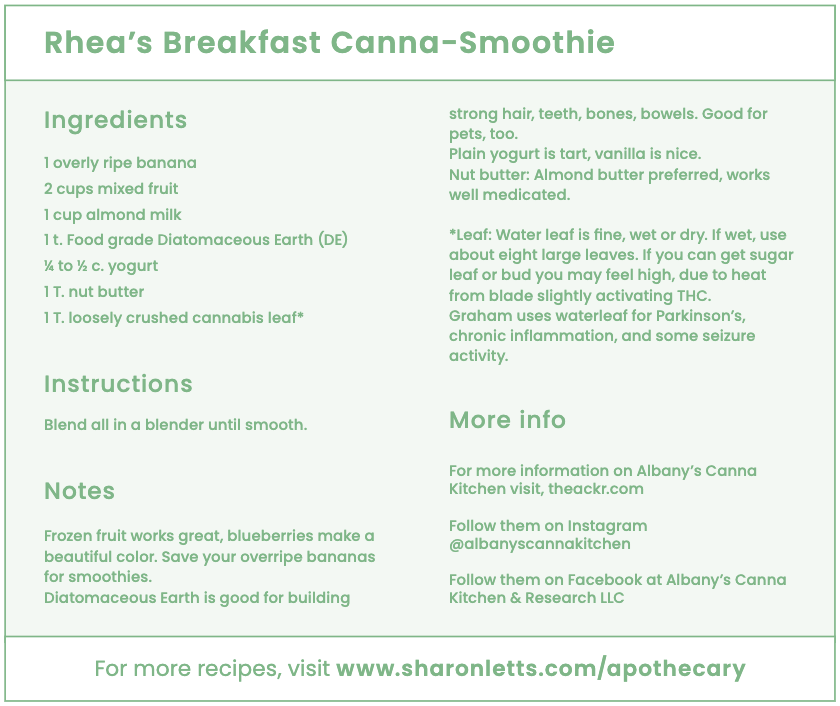Kitchen Apothecary - Albany's Canna Kitchen, Oregon - Reducing symptoms of dementia using cannabis - By Sharon Letts

Reducing symptoms of dementia using cannabis..
Rhea Graham started Albany’s Canna Kitchen with her daughter, Kendra and her mother Bessie, making what they call “Smokeless Remedies”: ingestible products made from plant material brought to them by clients, or patients within the State of Oregon’s medical marijuana program.
The menu of what they can make is extensive, infusing everything from peanut butter to olive oil, to the stronger cannabis oil used for serious ailments.They also conduct workshops, teaching others how to make their own medicine.
The following is a simple recipe using cannabis, with Rhea sharing anecdotal stories of healing from various cannabis products helping dementia and Alzheimer’s patients.“I’ve worked with three late-stage Alzheimer’s patients in the recent past,” she shared. “Improved behavior is seen in minutes, and it’s been nothing short of miraculous.
Although it can be challenging to get dosing figured out, once you do life is much better for all involved.” Graham said her first patient had been in a care facility, but wasn’t sleeping, so they would lock him up at night and he would take things apart, including doors off the hinges. Once he returned home in a few days we had his dose figured out and he began sleeping 12 hours a night, taking only little infused chocolates.
Infused candy is said to be a favorite delivery with dementia patients, as they have a hard time taking pills or tincture.
With her second patient, Graham said they began making the following smoothie with fresh fruit and cannabis. The cannabis is not decarboxylated (pre-activating the THC), so there is no head-high.
“The difference in the patient after drinking the smoothie was monumental,” she said. “After a few minutes the patient stopped crying and found the ability to use words for the first time in a long time. The anxiety that plagues most Alzheimer’s patients is relieved.
”Though the patient is not back 100 percent, Graham said much of the behavior problems have subsided, with a calmer, happier patient and surrounding friends and family.

Written and Published By Sharon Letts in Weed World Magazine issue 151















Please complete your information below to login.
Sign In
Create New Account